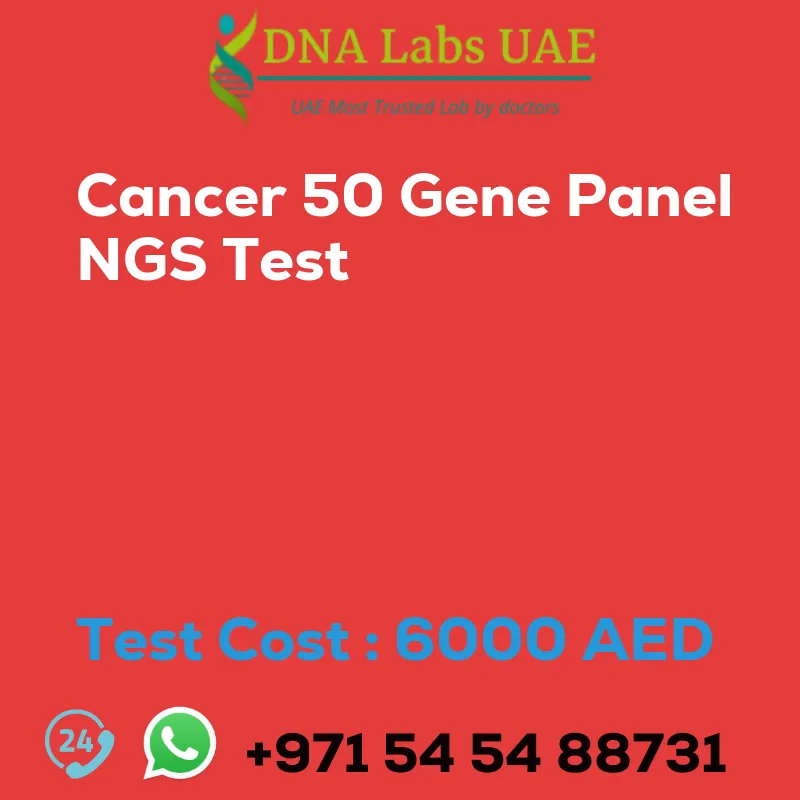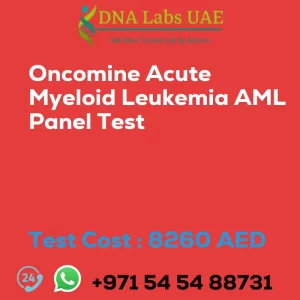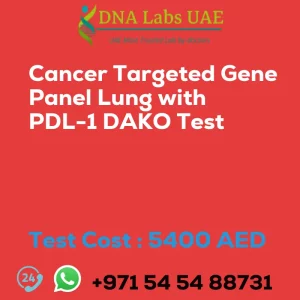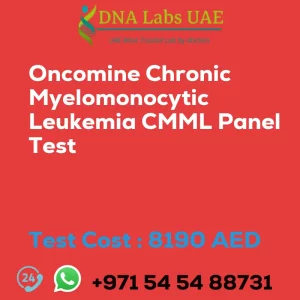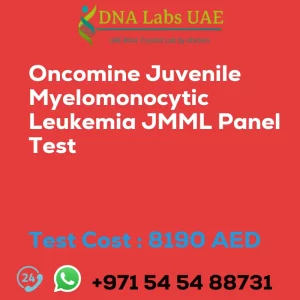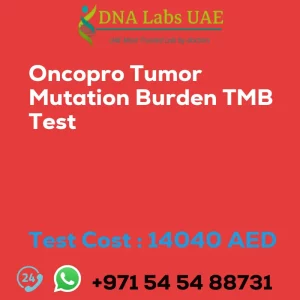CANCER 50 GENE PANEL NGS Test
Test Name: CANCER 50 GENE PANEL NGS Test
Components: ABL1, EGFR, GNAS, KRAS, PTPN11, AKT1, ERBB2, GNAQ, MET, RB1, ALK, ERBB4, HNF1A, MLH1, RET, APC, EZH2, HRAS, MPL, SMAD4, ATM, FBXW7, IDH1, NOTCH1, SMARCB1, BRAF, FGFR1, JAK2, NPM1, SMO, CDH1, FGFR2, JAK3, NRAS, SRC, CDKN2A, FGFR3, IDH2, PDGFRA, STK11, CSF1R, FLT3, KDR, PIK3CA, TP53, CTNNB1, GNA11, KIT, PTEN, VHL
Price: 6000.0 AED
Sample Condition:
- For Leukemias: Submit 3 mL (2 mL min.) whole blood in 1 Lavender top (EDTA) tube. Ship refrigerated. DO NOT FREEZE.
- For Solid tumors: Submit formalin fixed paraffin embedded tissue block. Ship at room temperature. Block should have at least 10% tumor tissue.
Report Delivery: Sample Mon by 11 am; Report 10 Working days
Method: Next Generation Sequencing
Test type: Cancer
Doctor: Oncologist
Test Department: MOLECULAR DIAGNOSTICS
Pre Test Information: Duly filled NGS Test Requisition Form is mandatory.
Test Details:
The Cancer 50 Gene Panel NGS Test is a genetic test that analyzes a panel of 50 genes associated with various types of cancer. The test uses Next-Generation Sequencing (NGS) technology to identify mutations and genetic alterations in these genes, which can help healthcare professionals to diagnose and treat cancer more effectively.
The Cancer 50 Gene Panel NGS Test is typically used for patients with a family history of cancer or those who have already been diagnosed with cancer. The test can help identify genetic mutations that may increase the risk of developing cancer, as well as mutations that may affect the effectiveness of certain cancer treatments.
Some of the genes included in the Cancer 50 Gene Panel NGS Test include BRCA1 and BRCA2 (associated with breast and ovarian cancer), TP53 (associated with multiple types of cancer), and KRAS (associated with lung, pancreatic, and colorectal cancer).
Overall, the Cancer 50 Gene Panel NGS Test can provide valuable information for healthcare professionals to make more informed decisions about cancer diagnosis and treatment, potentially leading to improved outcomes for patients.
| Test Name | CANCER 50 GENE PANEL NGS Test |
|---|---|
| Components | ABL1, EGFR, GNAS, KRAS, PTPN11, AKT1, ERBB2, GNAQ, MET, RB1, ALK, ERBB4, HNF1A, MLH1, RET, APC, EZH2, HRAS, MPL, SMAD4, ATM, FBXW7, IDH1, NOTCH1, SMARCB1, BRAF, FGFR1, JAK2, NPM1, SMO, CDH1, FGFR2, JAK3, NRAS, SRC, CDKN2A, FGFR3, IDH2, PDGFRA, STK11, CSF1R, FLT3, KDR, PIK3CA, TP53, CTNNB1, GNA11, KIT, PTEN, VHL |
| Price | 6000.0 AED |
| Sample Condition | For Leukemias: Submit 3 mL (2 mL min.) whole blood in 1 Lavender top (EDTA) tube. Ship refrigerated. DO NOT FREEZE.\nFor Solid tumors: Submit formalin fixed paraffin embedded tissue block. Ship at room temperature. Block should have at least 10% tumor tissue. \nDuly filled NGS Test Requisition Formis mandatory. |
| Report Delivery | Sample Mon by 11 am; Report 10 Working days |
| Method | Next Generation Sequencing |
| Test type | Cancer |
| Doctor | Oncologist |
| Test Department: | MOLECULAR DIAGNOSTICS |
| Pre Test Information | Duly filled NGS Test Requisition Formis mandatory. |
| Test Details |
The Cancer 50 Gene Panel NGS Test is a genetic test that analyzes a panel of 50 genes associated with various types of cancer. The test uses Next-Generation Sequencing (NGS) technology to identify mutations and genetic alterations in these genes, which can help healthcare professionals to diagnose and treat cancer more effectively. The Cancer 50 Gene Panel NGS Test is typically used for patients with a family history of cancer or those who have already been diagnosed with cancer. The test can help identify genetic mutations that may increase the risk of developing cancer, as well as mutations that may affect the effectiveness of certain cancer treatments. Some of the genes included in the Cancer 50 Gene Panel NGS Test include BRCA1 and BRCA2 (associated with breast and ovarian cancer), TP53 (associated with multiple types of cancer), and KRAS (associated with lung, pancreatic, and colorectal cancer). Overall, the Cancer 50 Gene Panel NGS Test can provide valuable information for healthcare professionals to make more informed decisions about cancer diagnosis and treatment, potentially leading to improved outcomes for patients. |

